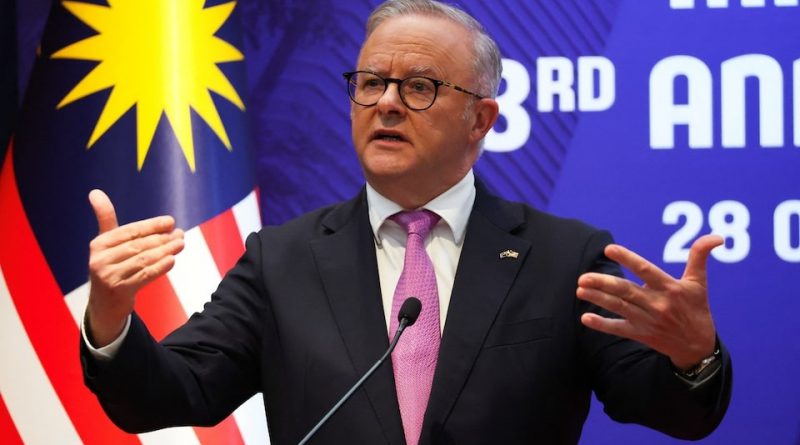Australia Declines Joint COP31 Hosting Proposal From Turkey
Sydney – Australia has confirmed it will not co-host the COP31 climate summit with Turkey, reaffirming that the United Nations framework governing climate conferences does not permit joint leadership and leaving the long-running hosting dispute without a clear resolution.
Prime Minister Anthony Albanese said the rules of the UN Framework Convention on Climate Change do not allow two countries to jointly preside over a Conference of the Parties, making Australia’s position firm and effectively closing the door on the possibility of shared hosting with Ankara.
The decision comes amid a continued stalemate, as both nations submitted bids in 2022 and neither has stepped aside, creating an unresolved impasse that now must be addressed at the ongoing COP30 summit in Belem, Brazil, where negotiators are being urged to secure clarity before planning for next year’s global climate gathering.
Albanese said the framework requirements are widely understood within the diplomatic community, adding that the absence of any mechanism for co-hosting makes discussions on such an option impractical and ultimately incompatible with how COP presidencies are designated and organized.
Turkey had recently conveyed interest in jointly leading COP31 and maintaining a form of shared stewardship, according to diplomatic sources, but Australia’s latest statement signals that such a proposal has no procedural path under existing UN climate protocols.
Australian officials have continued active lobbying efforts in Belem, where the presence of Climate Change Minister Chris Bowen has been described by observers as a boost to Australia’s campaign, particularly given the strong public alignment with Pacific island nations vulnerable to climate impacts.
Thom Woodroofe, a senior fellow with the Smart Energy Council, said that the differing diplomatic priorities of Australia and Turkey would make joint hosting difficult even if the rules allowed for it, while noting that Australia could still find ways to acknowledge Turkey’s ambitions in broader climate leadership efforts.
Under UN rules, hosting rights for COP31 must be agreed unanimously by the 28-country regional grouping responsible for this cycle, and the absence of consensus places pressure on both Australia and Turkey to modify their positions or risk losing the summit to a default location.
If the stalemate continues, hosting responsibilities would fall to Bonn in Germany, home to the UNFCCC headquarters, though German officials have repeatedly indicated they do not wish to take on the role and would prefer a member of the designated regional group to assume the presidency.
COP summits have grown significantly in scale and influence, evolving from diplomatic gatherings into international events where governments, companies and civil society groups converge to shape climate action, making the hosting role strategically important for international visibility and policy influence.
Albanese recently wrote to Turkish President Tayyip Erdogan in an attempt to ease tensions surrounding the hosting issue, signaling Australia’s interest in constructive dialogue while maintaining that the rules governing COP leadership must be followed as they stand.
Australia is campaigning to host the summit in partnership with Pacific island nations for the first time, aligning with regional aspirations to spotlight climate vulnerabilities, particularly for countries threatened by sea-level rise, extreme weather and long-term environmental pressures.
The Pacific Islands Forum, representing 18 nations, has formally endorsed Australia’s bid, emphasizing the symbolic and practical importance of holding a major climate conference in partnership with a region considered one of the most climate-sensitive and politically unified voices on global environmental issues.
As discussions continue in Belem, the lack of movement from either Australia or Turkey keeps uncertainty high, while diplomats stress that a clear decision is necessary for advanced planning, logistical preparation and the international coordination required for a summit of this scale.
The coming weeks are expected to shape the final outcome as negotiators evaluate pathways to consensus, assess regional positions and determine whether compromise or withdrawal by one party will finally resolve the prolonged dispute over who leads COP31.



